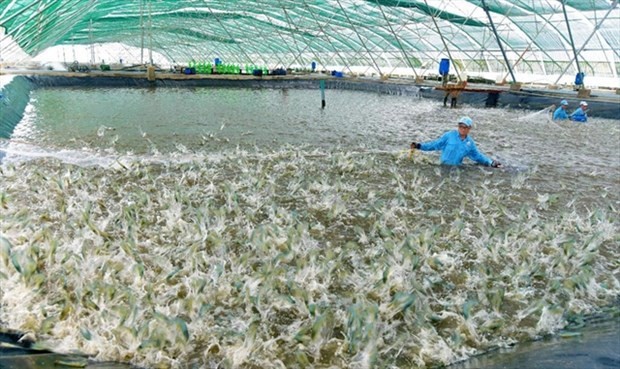
Viet Nam plans modern and sustainable fisheries industry
Latest
 |
| Viet Nam’s aquaculture output in 2021 was estimated at 4.75 million tonnes. (Photo: vasep.com.vn) |
The Ministry of Agriculture and Rural Development is drafting a Prime Minister's decision on a master plan for protecting and exploiting aquatic resources until 2030.
This plan is necessary to protect, conserve, restore and develop aquatic resources, as well as to meet the requirements of importing countries, according to the ministry.
The plan will make the fishing efficient and sustainable, in line with the requirements of international integration associated with the protection of national sovereignty, defence and security on the seas and islands of Viet Nam.
With a vision to 2050, Viet Nam will become a country with a sustainable and modern fishery industry while its marine biodiversity is preserved and developed.
About 28 coastal provinces have also had plans to sustainably develop the fishery industry to remove the EU's "yellow card."
Of which, Ba Ria-Vung Tau province has synchronously implemented solutions to combat illegal, unreported, and unregulated fishing (IUU).
The provincial Department of Agriculture and Rural Development has urgently completed the installation of monitoring systems for fishing vessels and issued fishing licences.
This is to control the operation of fishing vessels at sea and ports and workers on fishing vessels to monitor the output of fishery products unloading at ports to combat illegal fishing.
Kien Giang province, one of the localities with a large fishing fleet in Viet Nam, also has many policies to develop sustainable fisheries.
The province will carry out a project to evaluate aquatic resources and the living environment of aquatic species in the province.
Kien Giang is also developing a project to restore the province's fishing industry and improve productivity in fishing chains.
The Directorate of Fisheries reported that Viet Nam’s aquaculture output in 2021 was estimated at 4.75 million tonnes, an increase of about 4.17 percent compared to 2020.
























